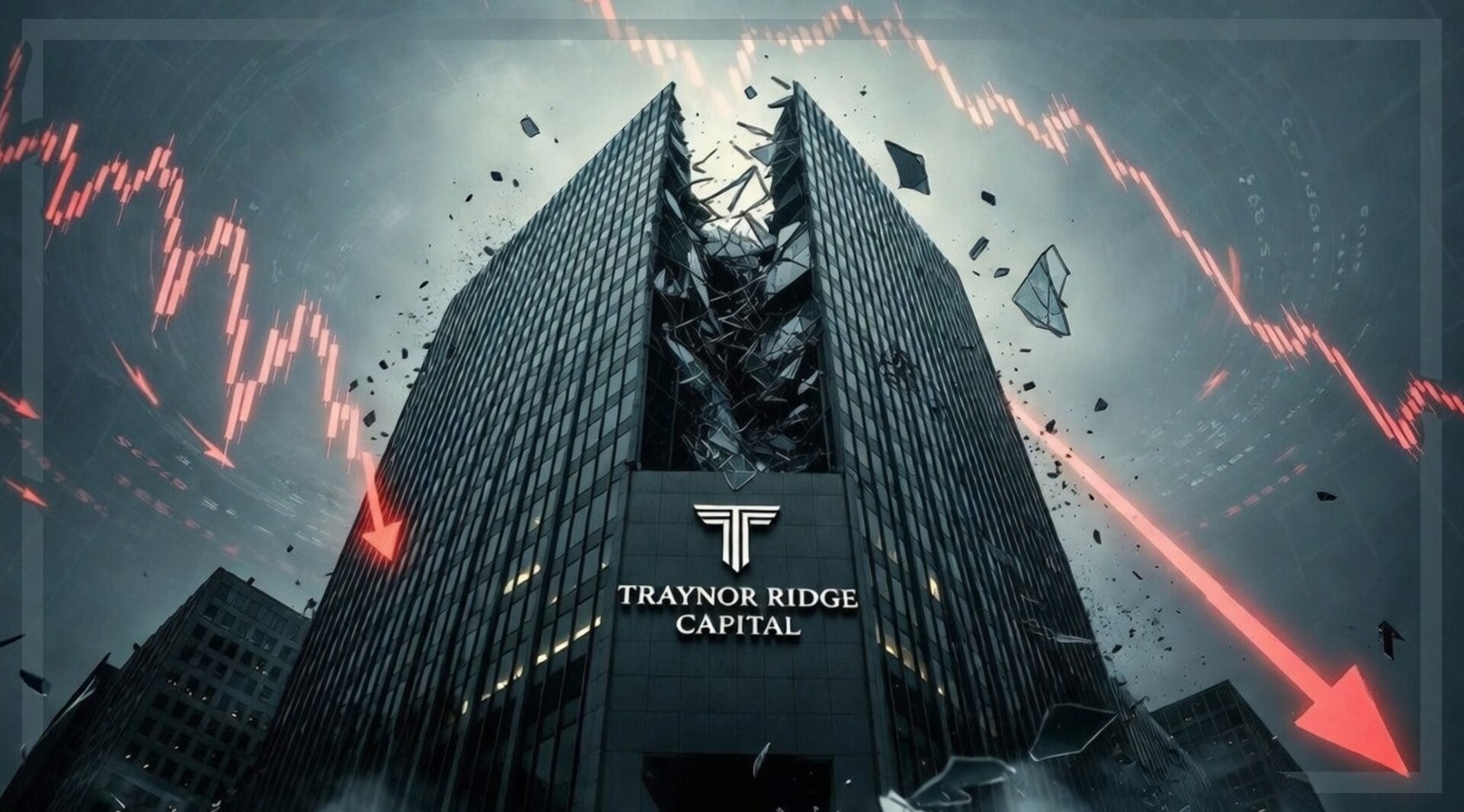Love them because you get them or hate them because you don’t, bankers’ bonuses never fail to attract scrutiny. Small wonder then, that Goldman Sachs’ $80 million bonanza for both its top bosses drew attention earlier this year. But was the windfall for CEO David Solomon and President John Waldron an outlier – or a sign that bankers’ bonuses are back?
Back to what exactly? It’s a fair counter-question. The so-called golden age of bonuses is generally regarded as being the decade running up to the credit crunch crisis of 2007 – when finance was revealed to be a cesspit of moral hazard that, left unchecked for years, managed to derail the entire global economy.
"Goldman Sachs wants to hand CEO David Solomon and COO John Waldron $80M bonuses each for 2024—excessive or earned? With record profits and shareholder pushback, the debate heats up before April 23.#BankerBonuses #GoldmanSachs #WallStreethttps://t.co/Y4mIKEZHCO pic.twitter.com/gi6UGgeCD8
— #DisruptionBanking (@DisruptionBank) April 1, 2025
Golden Age of Bankers’ Bonuses
Prior to that, the banking profession’s elite was, put bluntly, raking it in. From 1998 to 2008, the top tenth of workers in the UK saw their share of overall national annual wages rise from 27% to 30%. Most of this lucre was composed of bonuses given to the top 1% of financial sector workers – in 2008 these amounted a staggering £12 billion.
In the US, where average Wall Street bonuses had trended steadily upwards since the 1980s, the peak year of 2007 saw average extra payouts of $180,000 – 50% more than the base mean salary of $120,000. This according to blogger Financial Samurai, an ex banker who retired, aged 34, in 2012.
As the West plunged into the worst financial crisis since the Great Depression, moral hazard became moral outrage – compelling governments to take action. The UK capped bankers’ bonuses at base salary level in 2014. The EU introduced a similar measure the same year but the US chose not to follow suit. However, the Dodd-Frank Act of 2010 introduced deferred payments and a claw-back scheme to punish reckless or illicit traders.
Dodd-Frank went into effect on this day in 2010, but has since been whittled down by Wall Street and corporate lobbyists.
— Robert Reich (@RBReich) July 21, 2023
The bottom line: Banks should not be acting like casinos.
We need to make banking boring again by bringing back Glass–Steagall. pic.twitter.com/XeLRZ4zwhS
New Decade – New Rules?
But all that arises passes away – in 2023 the UK abolished the cap, returning bonus awards to the purview of banks, while in the US the Dodd-Frank law has struggled with implementation issues.
So, a new age dawning for the greedy banker? Well, perhaps not quite. Bonuses have indeed begun to rise again after poor payouts in 2022 – but whether they return to the levels of the good-bad old days, before the crisis, remains to be seen.
🚨 JUST IN: Hedge funds bought global stocks last month at the fastest pace in history – Goldman Sachs. 📈🌍 #Stocks #HedgeFunds #Investing #MarketUpdate #CryptoNews pic.twitter.com/omGURAT7Bg
— Crypto News Hunters 🎯 (@CryptoNewsHntrs) June 8, 2025
Bankers’ Bonuses Less Juicy in Other Sectors
Quants, or quantitative analysts – computer data crunchers also vilified for their perceived role in the financial crisis – saw a more ‘modest’ $105,711 average bonus in 2024. This represented a 15.7% rise on the previous year and was equal to roughly half their average base salary of $205,625. Compliance sub-sector workers were the ‘poor boys’ of the pack, receiving an average $40,568, a rise of 12.8% on 2023.
Interestingly, the only sub sector mentioned by eFinancial Services to take a bonus cut between 2023 and 2024 was equity capital markets – the average payout shrank by 9.4% to $122,151.
To maintain perspective, it’s worth bearing in mind that the Bureau of Labor Statistics places the average salary in the US at $65,470. Not to mention that many if not most workers receive no bonus at all.
A Dollar Ain’t What it Used to Be
Then there’s the declining value of currencies to consider. According to the US Inflation Calculator, the $180,000 average bonus paid out on Wall Street in 2007 would equate to roughly $270,000 in purchasing power in 2024.
That’s a 50% inflation rise over the timeframe, and it’s pretty much mirrored in the UK – the Bank of England says that the £12 billion in bonuses paid out in 2008 would equate to around £18 billion in 2024 money.
🚨 JUST IN: Federal Reserve Governor Chris Waller says the Fed should cut interest rates next month and that President Trump's tariffs won't significantly boost inflation.
— Eric Daugherty (@EricLDaugh) June 20, 2025
Finally, common sense.
Make it happen. pic.twitter.com/ATnz1W4gsi
A Windfall Year for Bankers’ Bonuses
If banker bonuses have yet to return to the giddy heights they enjoyed pre-credit crunch, they certainly look better than they have done in recent years. In its annual Financial Services Compensation & Lifestyle Report, eFinancial Careers described 2024 as offering “the outstretched hand of hope to the financial services industry” after a “hard” 2022 and “worse” 2023.
Taken on aggregate, 2,500 financial sector respondents reported an overall 22% rise in bonuses for 2024, with payments made early this year. “There were significant variations by both sector and region,” adds eFinancial Careers, “with hedge fund professionals receiving the biggest increases and those in operations the lowest.”
Trump Tariffs – Bad For Bonuses?
Move ahead to 2025, and the outlook is not as bullish as it was in December, when bankers were confident of an average upswing of 50% on the previous year’s payouts.
The main driver for the gloomier forecast is – you guessed it – Trump’s tariffs. Earlier this month eFinancial Careers reported: “It’s difficult to predict what banking bonuses will be at the best of times. With erratic tariffs, it’s borderline impossible.”
With that caveat in mind, it cited pay consultants Johnson Associates to predict that bonuses for 2025 could swing from a 20% annual dip overall to a minimal (2.5%) hike, “depending on how Trump feels throughout the year”.
Sen. Rand Paul: “Tariffs are paid by Americans. They’re taxes. They shouldn’t be instituted by emergency rule…Tariffs should pass Congress. They shouldn’t be done by executive order.” pic.twitter.com/aF7vvIx30U
— Republican Accountability (@AccountableGOP) June 19, 2025
Bankers Brace for Impact
In bad news for money-hungry bankers, eFinancial Careers concluded a 5-10% decrease across the board as the most likely outcome at the time of writing. Even hedge funds could see a 15% dip and at best get a 5% boost on 2024 payouts. Under this gloomy forecast, asset managers are likely to have it even worse, ranging from a doom-and-gloom scenario slashing of 17.5% to a blue-skies rise of 2.5%.
Overall, eFinancial Careers forecasts a base average 5% drop in bonus payouts for hedge funds, private equity, insurance, and wealth management professionals. Of course, these predictions are likely to change as the year progresses – for the better or worse.
Managing Expectations
So it’s fair to say that in 2025, bonuses are still a major perk of the banking industry – but outliers such as Waldron and Solomon notwithstanding, finance professionals might want to think twice before planning early retirement.
As Financial Samurai puts it: “High pay isn’t enough to retire early. One must also make savings an absolute priority given how easy it is to spend everything we make. We all know plenty of people who make lots of money who have no savings or investment accounts to show for due to their lack of discipline.”
In other words, bankers can and do command earnings that workers in many other industries would envy – but the life-changing, eye-watering bonuses that tend to grab headlines are for a privileged few.
Most finance sector workers will find that the path to early retirement is not an easy one, especially given that many tend to be based in expensive cities like London, Singapore and New York.
Small Payout For Non-Elites
That said, lower-ranked workers in the banking industry might take some comfort from one notable development earlier this year. In addition to the usual round of bonuses paid to its elite, Barclays announced in February it would also be giving the “vast majority” of its workers a £500 share grant.
Said to total around £50 million, the payout could be a sign of things to come in a changing industry. Barclays chief executive CS Venkatakrishnan has described it as a move to democratize equity ownership and thus stimulate markets.
Venkatakrishnan’s bonus payout for the same year? In addition to his base salary of £2.9 million and long-term incentive payments exceeding £5 million, he received an extra £2.2 million. Draw your own conclusions.
Author: Damien Black
The editorial team at #DisruptionBanking has taken all precautions to ensure that no persons or organizations have been adversely affected or offered any sort of financial advice in this article. This article is most definitely not financial advice.
#banking #finance #BankerBonuses #GoldmanSachs #Barclays #AnnualReport
See Also:
Should the Bosses of Goldman Sachs Receive $80 Million Each in Bonus for 2024? | Disruption Banking
Investment Banking Revenues Soar as U.S. banks report 2024 revenues | Disruption Banking
Should DJ Solomon be paid $35 million for his work in 2021? | Disruption Banking

















